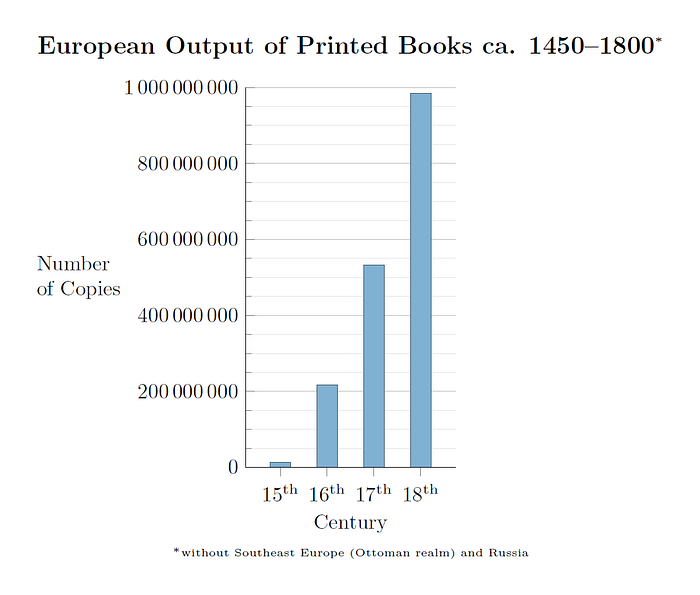“The Sovereign Individual” Book Review: Takeaways, Quotes, and Critique
“The transition from one stage of economic life to another has always involved a revolution. We think that the Information Revolution is likely to be the most far reaching of all. It will reorganize life more thoroughly than either the Agricultural Revolution or the Industrial Revolution. And its impact will be felt in a fraction of the time. Fasten your seat belts.”
AUTHOR NOTE: If you’re interested in these ideas, check out Roote—my online school for world-class systems thinkers.
The goal of this article is to review/summarize The Sovereign Individual, a book written in 1996 by James Dale Davidson and William Rees-Mogg. At a high level, The Sovereign Individual (SI) tries to predict the effects of the Information Revolution. The authors explore this by using a “history doesn’t repeat itself, but it rhymes” approach. i.e. They analyze the Industrial Revolution and then try to map that onto the Information Revolution.
Though the authors don’t use this language, I think it’s helpful to think about these kinds of books in the “mapping” sense. They analyze the Industrial Revolution through various lenses, then “map” those onto the Information Revolution. The highest level lens is one of “Institutions”. These Institutions “survive” (in a competitive environment with other Institutions) by leveraging Capital (often through means of Violence) and by leveraging Information (often through Myths). I like to think of this from an evolutionary perspective, where there’s both coopetition across institutions (like nation-states competing with religion) and within institutions (like nation-states competing with each other).

SI looks at the institutional transition during the Industrial Revolution (Religion → Nation-State) and Information Revolution (Nation-State → Sovereign Individual).

Industrial Revolution Transition from Church → Nation-State
During the Industrial Revolution, there was a transition from religion as the dominant institution to the nation-state as the dominant institution. This transition occurred because of both capital/violence and information/myths. Let’s look at each:
Capital/Violence
One of the authors’ main claims is that the nation-state was an inevitable result of the Gunpowder Revolution and the increasing returns on violence. With gunpowder, there were returns to violence at scale, not just efficiency. e.g. Tibet has tons of natural resources. (46% per cent of the world’s population depend on rivers originating in Tibet!) China is big (can operate violence at scale) so was able to “conquer” Tibet, gaining power over its rivers (and other natural resources). The authors put it succinctly:
“The nation-state facilitated systematic, territorially-based predation.”
Meta-note: I personally find these “violence-based” claims/lenses fascinating. Many of the books that think about “root-causes” (like money) deal with violence. e.g. In Debt, the author discusses violence as the base governing system for debt. (What do you do if someone doesn’t pay? If you can exert violence, then you can jail them.)
Information/Myths
In addition to capital (sometimes gained through violence), institutions also need information/myths to survive. These myths are especially strange during transitionary times when there’s a:
“Particularly wide gap between perceived myths and reality”
Pre-Industrial Revolution, the church had a monopoly on information because books were expensive to create. The printing press broke this monopoly.

With that monopoly broken, the word of god could be undermined, creating competition (amongst Catholic and Protestant religions). Luther’s works accounted for no less than 1/3 of all German-language books sold between 1518–1525.
Once the mechanism for Information propagation changed, so too did the Myths. Previously burdensome religious myths were updated to align with new mercantilist culture. Status from reputation-based chivalry changed to status from financially-based wealth.
Together in aggregate: The printing press allowed for info-based competition within the dominant institution—religion (Catholic vs. Protestant). The Gunpowder Revolution further transitioned power from Religion to Nation-State. The final stages of the Industrial Revolution (steam-based engines, factories, etc.) solidified the Nation-State as the primary Institution. But its time is coming to a close.
Information Revolution Transition from Nation-State → Sovereign Individual
During the Information Revolution, the authors predict a transition from the nation-state as the dominant institution to the sovereign individual as the dominant institution. Like before, this transition will occur because of both capital/violence and information/myths. Let’s look at each:
Capital/Violence
In the digital age (especially with cryptography), it’s much more difficult for nation-states to extort capital through violence (Vitalik calls this the “defender’s advantage”). The nation-state’s decreasing ability to extort capital is occurring at the same time as the value we gain from them goes down. The long-held balance of extortion vs. protection is breaking. Right now nation-state citizens function as employees (governance through democracy-based voice), not customers (governance through exit-based capital). So the authors predict that a given company/person will use a tax haven, then use “protection as a service” for safety from violence.
Meta-note: When thinking within an Institution, it’s helpful to think about the incentives of the agents that make up that institution. In the example above, we think about citizens within a nation-state, whether their incentive set is more similar to an employee or customer, and what they gain from “being part of” the nation-state.
This transition away from extortion will remove (tax-based) resources from the nation-state (see the Panama Papers as an example of modern-day nation-state tax evasion). The authors then predict that:
“Nation-states will experience a sharp drop in revenue…but retain the unfunded liabilities and inflated expectations and social spending inherited from the industrial era…tax consumers will be the losers.”
This difference between expectations and reality is the source of both snake person angst (see Premium Mediocre) and traditionally middle income folks in developed countries. The authors claim that return for “slider-speed bats” (ordinary performance) is bound to fall. (I love the analogy “slider-speed bats” for power law distribution. It says: you can be pretty good at something like hitting 80mph slider pitches. But you won’t make it to the MLB.) The authors also connect this with the transition from “exploitation” to “discrimination” as the primary form of redistribution in the information age.
It may have been half-credible to suppose that a barely literate auto worker had been somehow “exploited” in the production of a car by the owners. The crucial role of conceptual capital was less obvious than in the Information Age, which clearly involves mental work…In fact, far from assuming that the workers created all value, as Marxists and socialists did throughout the 19th and 20th centuries, the obvious and growing trend away from unskilled employment gave rise to a spreading worry about the opposite problem — whether unskilled laborers still had any economic contribution left to make.
The authors predict a transition to “Competitive Territorial Clubs” (instead of nation-states). These clubs would compete across various axes: protection, taxes, etc. Public goods would not go away (if a club didn’t have them, their “citizen customers” would leave). Sovereign Individuals would be the customers within these clubs—individuals who can go wherever they’d like with their time/money/physical location, paying taxes to the First Bank of Nowhere.
Information/Myths
Right now we’re beginning to experience a “particularly wide gap between myths and reality” about the nation-state. In the 20th century, over 115M citizens lost their lives fighting in national wars. Would people still do that today?
The primary myths of the late-stage Industrial Revolution (nationalism and fascism) came from an absence of myths tied directly to capitalism.
“The freedom that capitalism provided to people to create their own identities proved scary to those who were not ready to make use of it. They yearned for the the security of a solid identity and were drawn towards the simplicities of the nationalist and fascist propaganda.”
In the transition away from the nation-state (and perhaps further away from religion), people will still search for collective morality, a sense of purpose/direction, and a coherent sense of the world order. The authors think these “Competitive Territorial Clubs” will impose exacting moral standards for residence. They think this new morality will focus on:
- Productivity and the correctness of earnings being retained by those who generate them.
- Efficiency in investment.
- Character and trustworthiness.
- The evil of violence.
Finally, they believe that, in the age of “voluntary” taxation, recipients of charity will need to appeal to private individuals (not big government), and will need to appear morally deserving.
Information
The authors also predict how information will change in our new age:
- “Narrow-casting will replace broadcasting”. (Filter bubbles!)
- “The very glut of information now available puts a premium on brevity. Brevity leads to abbreviation. Abbreviation leaves out what is unfamiliar.” (Clickbait!)
Increasing information doesn’t necessarily mean increased coherence. The authors state it brilliantly:
“The Age of Information has not yet become the Age of Understanding.”
Trump is indicative of the nation-state’s final days. As the authors write:
“A system that routinely submits control over the largest, most deadly enterprises on earth to the winner of popularity contests between charismatic demagogues is bound to suffer for it in the long run.”
Critique
In general, I like books that map macro transitions and The Sovereign Individual does a good job of this. However, I do have a couple big critiques:
Missing GAFA Aggregators in Institutional Co-Evolution
The authors do a good job of examining how the nation-state’s power will decrease. However, they don’t adequately zoom out to the level of “institutional co-evolution” to see that information-based aggregators (like Google and Facebook) would rise to supernational power. They don’t examine how lowering the costs of information distribution could lead to disintermediating publishing middlemen. We should keep this in mind as we go forwards into the 21st century. It’s not just that nation-states are losing power while new-age Institutions like memes are gaining power. Instead, all of these Institutions (states, firms, religion, networks, blockchains, memes) co-evolve with each other.
Missing Ecosystem Geo-Hubs
Similar to the critique above, the authors also miss the idea that lower frictions lead both to decentralization (of information) and to centralization (of knowledge in ecosystems like Silicon Valley or Shenzhen). So the authors think that they’ll be a bunch of Sovereign Individuals living on the Information Superhighway. Instead, we have a bunch of smart/ambitious people more easily learning about each other and then congregating together. The reality is much closer to their Competitive Territorial Clubs (competing on the axis of “smart, ambitious people”) than it is to the Sovereign Individual.
Missing The Macro Goal
Though the authors (relatively) correctly predict the affordances of digital technology, they then recommend that people should try to hoard their wealth as Sovereign Individuals by placing it in tax havens and such. Ugh. This misses two huge points:
- Money has diminishing returns on happiness (after 50k/year, you don’t get happier). So hoarding/accumulating doesn’t make you happier, it just gives you more power.
- They just completely ignore talking about “the goal”. i.e. If you’re writing a book about the upcoming intense transition for humanity, shouldn’t you also be thinking about how to make that transition good for humanity? They don’t think about the macro goal at all, or how one would go about achieving it. Instead, they just take a hyper self-focused view (likely in line with their libertarian bent) and think about individuals can exploit this opportunity. (See douglas rushkoff’s “Survival of the Richest”.)
Focusing on Systems, Ignoring Identity
Finally, the authors do a pretty poor job in thinking about how identity and historical inertia affects people. This is a classic issue with “hyper systems” folks (people who think at the macro macro scale). They don’t think about people or identity! This is tough: systems are the opposite of individuals. But they need to think about identity, their own biases, etc.
Thanks for reading and ping me in the comments if you have questions or concerns!
Please support me on Patreon / StakeTree!
Thanks to Collin Brown, Mike Goldin, John Desmond, Paras Chopra, Andrew Cochrane, Sandra Ro, Harry Lindmark, Jonny Dubowsky, Sam Jonas, Malcolm Ocean, Colin Wielga, Joe Urgo, Josh Nussbaum, John Lindmark, Garry Tan, Jacob Zax, Doug King, Katie Powell, Mark Moore, Jonathan Isaac, Coury Ditch, Ref Lindmark, Mike Pratt, Jim Rutt, Jeff Snyder, Ryan X Charles, Chris Edmonds, Brayton Williams, Brian Crain, David Ernst, Ali Shanti, Patrick Walker, Ryan Martens, Kenji Williams, Craig Burel, Scott Levi, Matt Daley, Peter Rodgers, Keith Klundt, Alan Curtis, Kenzie Jacobs, and James Waugh for supporting me on Patreon! Thanks to Storecoin, Griff Green, Radar Relay, district0x, Niel de la Rouviere, Brady McKenna, and some anonymous others for supporting me on StakeTree! Thanks to KeepKey for sponsoring the show! Please use them/check them out!
Hit me up on Twitter!
Disclaimer: I own less than $5000 of any given cryptocurrency, so my monetary incentive is not too aligned with Bitcoin, Ethereum, etc. :)








